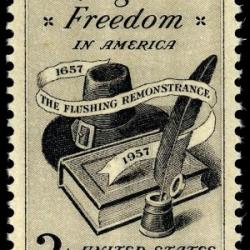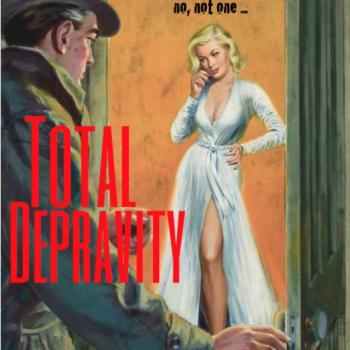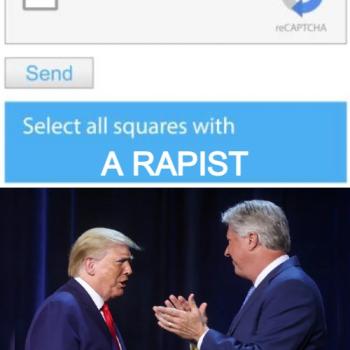I’ve just been watching history broadcast live and it was a beautiful thing to see.
I’m still a bit too gobsmacked and overwhelmed to say much more just yet about that actual moment when Barack Obama was sworn in as the 44th president — I’m afraid I’d bungle the words like the chief justice did — so I’ll return later to that subject and to the substance of the speech itself. For the moment, let me just offer some initial reactions to the rest of the ceremony to serve as an Inauguration Day thread.
This young country has only had 44 presidents and five of them were
there on the steps of the Capitol. Who else was there? Lawmakers from
both parties and the families of those being sworn into office and of
those willingly yielding that office. The peaceful transition of power
is always, in itself, a kind of miracle.
And note who wasn’t there on those steps. I didn’t see rows of generals
in military uniform. I didn’t see bankers or the Lords of Wall Street.
But there was room there for a poet, for musicians and clergymen. Only at the very end did a group of uniformed Marines take to the
stage, but it turns out they were only there to sing. Good for us.
When I heard that Aretha Franklin would be singing “My Country Tis of Thee” I wondered about the choice. Why that simple melody instead of something that might require and showcase a voice like hers? (I’d been hoping for “Lift Every Voice and Sing”).
But then I heard her start working “let it ring.” Oh. my. That’ll preach. Rick Warren’s polite opening prayer now seemed like mere throat-clearing — it was Aretha’s invocation that had me shouting amens.
I do want to discuss Warren himself and his presence there today in more detail later (no, really, I promise). For the most part, he did a fine job. His prayer was heartfelt, if a bit workmanlike and mostly — deliberately and carefully — it was inclusive. It exhibited, in other words, signs of the nascent but not yet fully realized inclusiveness and tolerance that I think our new president was hoping to nurture in both Warren and his constituents by including him — and thus them — in today’s ceremony. Here’s hoping that Warren will continue to follow the trajectory of what he already seems to believe even when that clear path leads to places where his loudest critics fear to go.
The only place he really stumbled, I think, was at the point where he was doomed by an impossible conflict between the demands of the occasion and the demands of his most-strident constituents. Those strident evangelicals hold that any public prayer that fails to include the shibboleth phrase “in Jesus name” is tantamount to blasphemy or to syncretism or compromise or denial. Or something. This insistence has little to do with theology — it’s more about declaring sectarian power, about marking one’s territory by pissing on hydrants, trees and anyone who disagrees with you. Warren tried to split the difference and it just didn’t work. But at least he recovered nicely there at the end, seeming to recognize the boundless inclusiveness of that pronoun, Our father …
The polarizing fundraisers of the politicized evangelical parachurch will spend much of today and the days to come parsing Warren’s prayer for anything that can be spun into controversy or condemnation. The poor man knew this and crafted his prayer accordingly. That is how all evangelical prayers and sermons are crafted nowadays. That is how we evangelicals have come to pray and to preach — fearful of controversy, wary of offending those determined to find or to invent offense.
Thank God the Rev. Joseph Lowery doesn’t pray like that. His benediction began with the words I had hoped to hear sung earlier:
Thou Who hast brought us thus far on the way;
Thou Who hast by Thy might, led us into the light,
Keep us forever in the path, we pray.
Lest our feet stray from the places, our God, where we met Thee.
Lest our hearts, drunk with the wine of the world, we forget Thee.
Shadowed beneath Thy hand, may we forever stand,
True to our God, true to our native land.
Lowery’s prayer went on, seamlessly weaving in the words of the prophets and the Gospels, providing a particular expression of faith that was yet able to include and to inspire those of other faiths or of no faith.
But of course it wasn’t just the Rev. Lowery’s words that inspired, it was the man himself — a man who had lived and experienced, struggled through and overcome “the days when hope unborn had died.” It was seeing such a man standing in that place and witnessing the joy of his vindication that really had me saying amen and amen.












